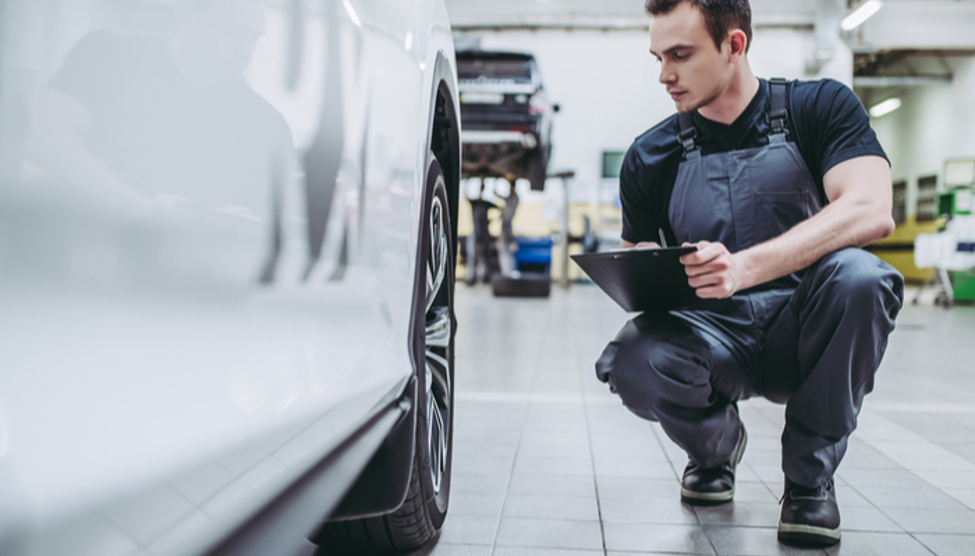If you have been in a car accident and have sustained injuries, one of the crucial steps you must take is to get your vehicle inspected. This inspection is necessary to determine the extent of damage to your car and can significantly impact your injury case. In this article, we will discuss why vehicle inspections are crucial to car accident injury cases, and what you need to know about them.
What is a Vehicle Inspection?
A vehicle inspection is a comprehensive examination of your car’s exterior, interior, and mechanical components. The inspection is performed by a qualified mechanic or technician, and its purpose is to assess the damage to your vehicle, identify any potential mechanical issues, and determine the overall safety of the vehicle.
Importance of Vehicle Inspections in Car Accident Cases
Vehicle inspections are crucial to car accident injury cases because they serve multiple purposes. Some of the reasons why vehicle inspections are so important include:
Determining the Extent of Vehicle Damage
One of the primary reasons for getting a vehicle inspection after an accident is to determine the extent of damage to your car. A thorough inspection can identify both visible and hidden damage to your car, which can impact your insurance claim and your injury case. If you don’t get your car inspected, you may not know the full extent of the damage, which can lead to issues down the road.
Proving Liability
Another important reason to get a vehicle inspection after an accident is to help prove liability. The inspection report can show the damage to both vehicles and can help establish who was at fault for the accident. If the other driver’s insurance company disputes liability, the inspection report can be used as evidence in court.
Documenting Evidence for an Injury Case
Finally, a vehicle inspection can document important evidence for your injury case. The report can identify any safety issues with your car, such as malfunctioning airbags or seatbelts, that may have contributed to your injuries. This evidence can be used to support your claim for compensation.
When Should You Get Your Vehicle Inspected?
If you have been in a car accident, you should get your vehicle inspected as soon as possible. Ideally, the inspection should be done within a few days of the accident. If you wait too long, the other driver’s insurance company may argue that the damage to your car was not caused by the accident.
Who Conducts Vehicle Inspections?
Vehicle inspections are typically conducted by a qualified mechanic or technician. You can take your car to a repair shop or dealership for an inspection. It is important to choose a reputable and experienced mechanic who has experience with accident-related inspections.
What Happens During a Vehicle Inspection?
During a vehicle inspection, the mechanic will examine the exterior, interior, and mechanical components of your car. The inspection will include:
Exterior Inspection (continued)
turn signals, and mirrors to ensure they are working correctly. The tires and wheels will also be checked for damage.
Interior Inspection
The interior of the car will be inspected for any damage or safety issues. The seats, dashboard, and airbags will be checked to ensure they are working correctly.
Mechanical Inspection
The mechanic will also inspect the mechanical components of your car, including the engine, transmission, and brakes. They will check for any mechanical issues that could impact the safety and functionality of your vehicle.
What if You Don’t Get Your Vehicle Inspected?
If you don’t get your vehicle inspected after an accident, it can have serious consequences for your injury case. You may not know the full extent of the damage to your car, which can impact your insurance claim. Additionally, if you don’t get your car inspected, the other driver’s insurance company may argue that the damage was not caused by the accident, which can make it harder to prove liability.
How to Ensure a Thorough Vehicle Inspection?
To ensure that your vehicle inspection is thorough and accurate, there are a few steps you can take:
Be Present During the Inspection
If possible, be present during the inspection so that you can ask any questions and ensure that the mechanic is thorough in their examination.
Provide Accurate Information
Make sure you provide accurate information about the accident, including the date, time, and location. This information can help the mechanic identify any damage that may have been caused by the accident.
Conclusion
In conclusion, getting a vehicle inspection after a car accident is crucial to your injury case. It can help determine the extent of damage to your car, prove liability, and document important evidence for your claim. If you have been in an accident, make sure to get your car inspected by a qualified mechanic as soon as possible.
Read this also: How to Value Your Head and Neck Injury After a Car Accident
FAQs
- Do I have to get my car inspected after an accident?
- While it is not required by law, it is highly recommended to get your car inspected after an accident to protect your injury case.
- Who pays for the vehicle inspection?
- In most cases, the cost of the inspection will be covered by the insurance company.
- How long does a vehicle inspection take?
- A vehicle inspection can take anywhere from a few hours to a full day, depending on the extent of the damage and the complexity of the inspection.
- What should I do if the inspection report is inaccurate?
- If you believe the inspection report is inaccurate, you can dispute it with the mechanic or your insurance company.
- Can I get a second opinion on the inspection?
- Yes, you can always get a second opinion if you are not satisfied with the results of the initial inspection.
